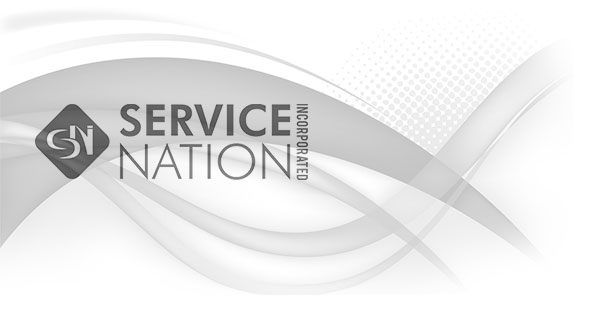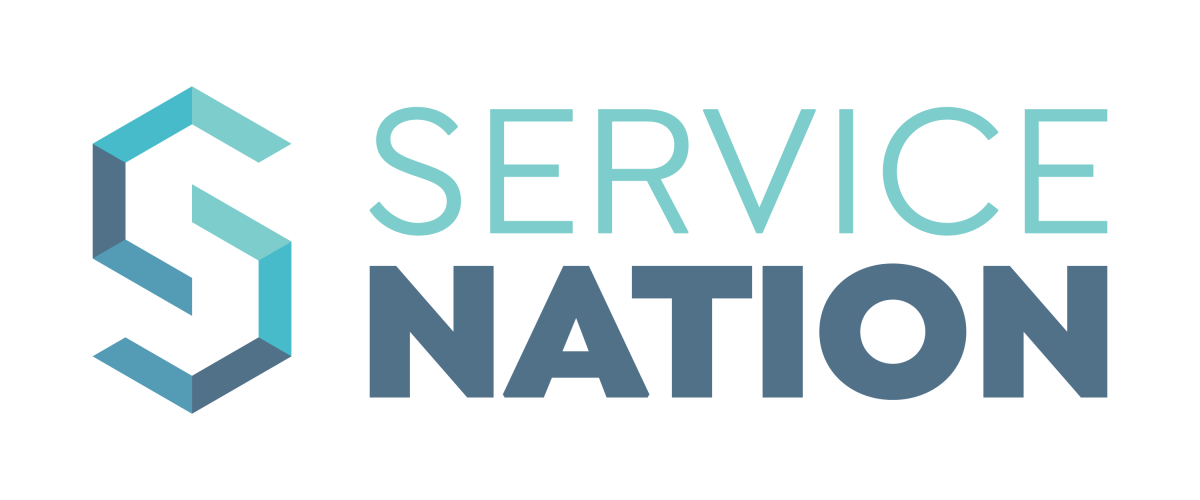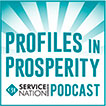KC Holcomb: Absolutely, David. The WQA Water Quality Association does surveys every two, three years of homeowners and every time they do a survey, the awareness level has gone up because of the Flint, Michigan stories and the micro-plastics and the pharmaceuticals and the PFOAs, which is our emerging contaminants that you're starting to read about. So the awareness level just keeps rising, we keep adding more contaminants into our water supply. And as you said in that quote, homeowners are more aware that they have to participate and add equipment because the municipalities can't do it all. We're very careful not to slam them because they're doing a very adequate job of giving us potable water. We're not dying of water-borne illnesses here in the United States. Well, I can't say that because you're starting to read about these brain eating amoebas and things that are getting through municipal.
I mean, there are occasional health disasters, so to speak, but we're doing a pretty good job of giving everybody potable water when you think of the volume of water that's delivered. But, you know, only 1% of that is used for drinking purposes. And to get it to that form, we have a program, our Noble Pro Advantage program, where we train on the importance of what we call a total home protection system. And it takes care of the working water, which is what the plumbers are mostly working with. Our mantra is finish the job, fix the water that broke it. And that's what our training revolves around. You know, certainly if you're in a hard water area, you want to soften the water. If you're on city water, everybody can use a carbon filter because that's what takes out the disinfecting agents, the chlorine or chloramine that they're using, depending on the municipality. But those chemicals are there to give us clean, potable, disinfected water. But we all know that there's the aging infrastructure, the age of the systems, they have limited budgets. We have main breaks that everybody knows about. Well, we recommend you put a UV light even on city water. For well water, it's a must, but on city water, put a UV light because by the time you get a boiled water alert in your area, you could have ingested contaminated water. So our system would be a working water system, which would be either a combination carbon filter with a softener, depending on the hardness in the market. It might be just a carbon filter, but then a UV light for the protection of pathogens. And then an RO system, which I know you have in your house for drinking water. And that unit you have in your home is certified for lead, chromium six, which is the urine brockovich chemical that everybody's aware of from 25 years ago. And now these new emerging contaminants called PFOAs, PFOS and PFOSs. So that's what we call our total home protection. We'll be talking about it at Service World and being an OEM manufacturer, we have everything that a plumber could possibly need on municipal water or well water. And we also have commercial equipment for very large homes or commercial properties. Yeah, I know it's cliché, but we are a one stop shop for everything they need with water across the board.
David Heimer: How easy is it? I mean, it sounds like water filtration is a great add-on product for plumbers. If you're already in the home, you're already doing repairs. Is that in fact the case?Is that what you recommend plumbers do?
KC Holcomb: Absolutely, David. I always say it’s the most natural, profitable add-on to a plumbing business. I mean, we have a lot of even HVAC customers involved because it parallels indoor air quality so closely. But for plumbers for sure, it’s the most natural because by default they are the water treatment experts. A lot of times they just don’t know it. And that’s part of our training is to get them to think about the service call and how to make it natural. You know, we don’t give them the words, we don’t script them, but we give them all the tools they need and marketing material through our training programs, all the support to be very effective in training and communicating to the homeowner. Because, you know, at the end of the day, it’s just an in and out and a drain. It’s no different than putting in a water heater. And most of the times, plumbers, if they haven’t done it, they’re just afraid of the unknown. And it really is a very simple, quick install and it’s very, very profitable for your members.
David Heimer: What is the best way to introduce water filtration products to homeowners? If you were a plumber, how do you recommend that plumbers do that?
KC Holcomb: On city water, which is 80, 85% of the market and it’s the low hanging fruit, well water’s a little different, but for city water, it’s very simple. In our Novo Pro Advantage program, we have some three short videos to onboard customers if they spend 20 minutes going through them, it goes through what to look for in the home, how to present it, how to test quickly at the kitchen sink for hardness and chlorine to chlorine. We also have another tool for selling RO, which is a TDS meter, which everybody’s seeing on TV with zero water commercials. It’s just like a thermometer and a glass of water. It quickly tests the TDS, which is the total dissolved solids. So those are the three tools for city water. And we provide the hardness and the chlorine free of charge when they go through our level one training on our website at novowater.com.
And if they spend 20 minutes doing that, each technician that does it will get a starter kit, which has all the literature, it has a laminated sizing guide with the features and benefits of our systems, which are the most sufficient on the market for salt and water savings, as far as our softeners go. It’s all on a key sheet for the tech to carry on their truck along with the leave behind literature. It all comes in a noble starter box, we call it, after they do the level one training. And then the level two training is one of our reps will come in and do an onsite visit with the tax and do a couple hours, as much time as they’ll give us, on more extensive training. And then we back that all with a webinar series, which we’ll be announcing at your show, starts in early September, we’ll probably have to announce it before your show.
But it’s a 10 week webinar series, which is free of charge, in the mornings. There’s three different time zones and it’s no more than an hour where a technician can jump on and learn about water conditioning, both municipal and well water. And if they go through 8 of 10 live and get 80% on the quiz at the end, they can win a free Novo system for their home. So it’s a great way to get technicians to learn and earn and get a system for their home. But to get back to the original question, it’s just a matter of them kind of correlating the purpose of the call. You know, let’s say they’re going in for a water heater. Mr. Smith, I’m here with ABC Plumbing, I’m here to take care of that water heater.
We never train them to lose the call that they’re dispatched. That’s job one, right? But once they test the water for the hardness and chlorine and you go through and do your plumbing inspection, you circle back and say, you know, that water heater’s only six years old and I notice you don’t have any water conditioning. You have very hard water here, there’s calcium and magnesium that’s building up, it’s trying to heat through that. You lost several years on that water using appliance and we recommend you put in the Novo system when we install that water heater. That’s a no-brainer. But, you know, a toilet flapper. You take your finger around that rubber flapper and that black coming off is the chlorine or chlorine eating away at it. It’s an oxidizer that’s used to disinfect the water, but it’s hard on the plumbing system.
It causes premature pinhole leaks, it causes plastic and rubber gaskets to go. It’s really hard on water using appliances, but that’s part of our training. You know, they’re all afraid of baiting and switching the homeowner into buying water treatment, but if they offer it and if they test on every home, we’ve seen great results. It’s the old Wayne Gretzky, you miss one hundred percent of the shots you don’t take. If you go in there and you don’t talk about it, you’re not going to sell any water conditioning products. But the ones that do, and it’s the 80/20 rule, you get 20% of them on board, and we hope the 20% will train the other 80. And that’s been very successful for us.
David Heimer: How about marketing for it? You know, what we’ve been talking about so far is a demand call that happens as a result of something that happened in the home. The water heater is leaking, there’s a leaking faucet, the toilet needs to be replaced, something like that. But is there marketing that works as far as just creating demand for water filtration in the home?
KC Holcomb: Sure. Any marketing would definitely add to sales, and we support them. We have, on our website, we have all the high res images and we have videos that they can link to on the homeowners side of our website, which is another tool for marketing that I recommend that technicians use because it shows that the Novo product, they can only get it through the professional plumbing trade, we sell through wholesale. So Novo’s only sold through wholesale to service contractors. The homeowner can’t shop them on price. If they use our website, we have a homeowner’s side to it, no pricing obviously, but all content on why water treatment? What’s the benefit of a softener? How does it work? The hydrological cycle. There’s all kinds of content and videos that they can link to and use on their tablets. But truthfully, David, mostly advertising, a lot of the water dealers are out there doing water sample bottles and they’ve gotten a bad reputation because it’s just a lead generator to get them into the house, because they’re spending hundreds of dollars to get in the home. These plumbers are invited in three or four times a day to fix something the water broke. So my feeling is to train technicians, they do most of the selling. Any marketing that the company wants to throw, throw as far as postcards or discounts, yeah, sure, that works. And our marketing department can work with theirs to come up with those campaigns. But it really is a frontline technician sell.
David Heimer: So basically, the postcards marketing for water treatment isn’t going to get you as much as just training your technicians to go out and just explain it and offer it.
KC Holcomb: That’s always been my opinion, yes. Now, I know you have a lot of marketing companies that work with your group, so I’m not saying that that’s not valuable because it is, it is. But just getting the word out because a lot of these plumbers, a homeowner doesn’t know that they’re doing it. So advertising as far as letting them know that we can help you with water conditioning is always helpful, but it’s always the technician and testing and bringing it up in the home, in my experience doing this for 13 years, it’s going to give you the best results.
David Heimer: That makes total sense to me. When I thought about it, that has always made sense to me. And at the same time, I’m driven by all the stories that I read about problems in the municipal water system that happen. You know, a city announces suddenly, hey, everybody needs to go buy a bottle of water for the next three days. Something like that. And I’m also driven in this by my wife who’s always been very conscious of water quality and, as you know, really loves that novo reverse osmosis system that we have. So I’m always sort of puzzled that people don’t go out and just get it on their own. But I think you’re right. I think you’ve got to make it really easy for them.
KC Holcomb: Well, homeowners, they need to be guided because they all know about the Brita and the zero water or the tap devices that they see in retail, which is great, and in our trainings, we tell the technicians to use that to their advantage. What they don’t know is that that’s all carbon. Carbon for city water is the best material known to man because it absorbs chemicals, takes out taste and odor and harmful chemicals. But they don’t know that you can get a big tank of it and put it in your basement or outside depending on what part of the country you’re in, a big tank that will take care of every tap in the house. What the homeowner’s not focused on is, again, the working water, the whole plumbing system. They’re just thinking about what they drink, which is important. Like you said, with that RO, we were big believers in treating that to the next level with reverse osmosis.
But as far as the carbon tank, that’ll take care of, what they don’t realize is with carbon or with chlorine and chloramine, that it off gasses. And when you’re taking a hot shower, you’re inhaling the chemical. It absorbs to your skin in a bathtub, it off gasses through toilets. It’s bad on the plumbing system, as I said earlier. So that’s where the education from the technician comes in and says, well, ask open-ended questions. Are you drinking your tap water? Most of them will say, no, I’m drinking from that refrigerator filter. Well, that’s a carbon filter that’s very expensive to replace and most homeowners don’t replace it. Well, how’d you like to have a whole tank of carbon that takes care of your whole house? And they get into the education process of what it’ll do for them. And that’s where it all comes in.
David Heimer: One of the big problems in some markets is pinholes in copper piping. Is water filtration a solution for that?
KC Holcomb: Yes, yeah. Actually, more and more municipalities are switching over to chloramine, which is the addition of ammonia, chlorine and ammonia, and it’s even more harmful on the plumbing system. It causes pinhole leaks. So yeah, carbon filtration, definitely as close as you can put it to the main that comes into the home, you’re going to protect the whole system from those pinhole leaks.
David Heimer: Well, if one of our listeners was interested in adding water filtration to his or her company and wanted to contact you, what would the best way be?
KC Holcomb: Best way would be just shoot me a direct email to kcholcomb, h-o-l-c-o-m-b @novowater.com, novowater.com. KC is just the letter K and the letter C.
David Heimer: KC, thank you so much. This has been terrific. I know it’s been very informative and hopefully some people will contact you and add this to their product mix. I know it’s been very successful for a lot of our members. So thanks again for doing this with me.
KC Holcomb: Thank you, David. Thank you for the time this morning.
Outro: We’re always looking for good ideas and interviews for our podcast. If you have an idea or maybe you think you should be interviewed, just shoot an email to profilesinprosperity@serviceroundtable.com, that’s profilesinprosperity@serviceroundtable.com. If you think what we’re doing has any value, it would be very helpful if you would give us a great rating on iTunes. Thanks for your support. Hope to see you again soon. Bye.





 (877) 807-0869
(877) 807-0869 Member Login
Member Login

